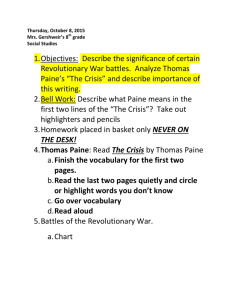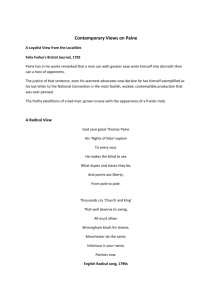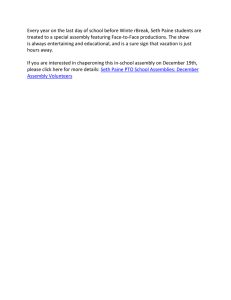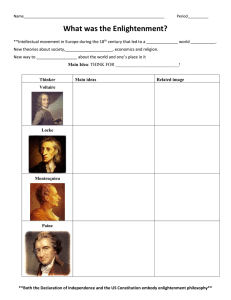Thomas Paine: Chapters 1-3 Study Questions
advertisement
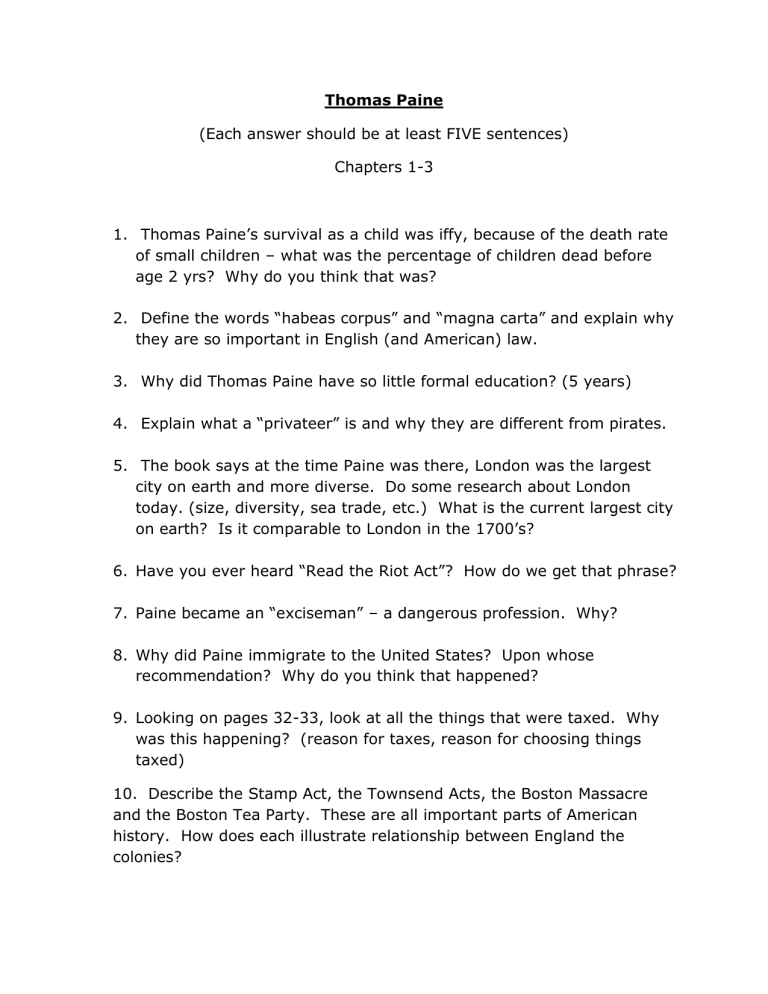
Thomas Paine (Each answer should be at least FIVE sentences) Chapters 1-3 1. Thomas Paine’s survival as a child was iffy, because of the death rate of small children – what was the percentage of children dead before age 2 yrs? Why do you think that was? 2. Define the words “habeas corpus” and “magna carta” and explain why they are so important in English (and American) law. 3. Why did Thomas Paine have so little formal education? (5 years) 4. Explain what a “privateer” is and why they are different from pirates. 5. The book says at the time Paine was there, London was the largest city on earth and more diverse. Do some research about London today. (size, diversity, sea trade, etc.) What is the current largest city on earth? Is it comparable to London in the 1700’s? 6. Have you ever heard “Read the Riot Act”? How do we get that phrase? 7. Paine became an “exciseman” – a dangerous profession. Why? 8. Why did Paine immigrate to the United States? Upon whose recommendation? Why do you think that happened? 9. Looking on pages 32-33, look at all the things that were taxed. Why was this happening? (reason for taxes, reason for choosing things taxed) 10. Describe the Stamp Act, the Townsend Acts, the Boston Massacre and the Boston Tea Party. These are all important parts of American history. How does each illustrate relationship between England the colonies? 11. The Sons of Liberty – Patriots to some Americans. Not to others. Not to the British. What made them “Patriots”? Why not to everyone? 12. The book says the Battle of Lexington and Concord changed Paine from an unhappy English citizen to a wannabe American. Why do you think that change occurred? 13. Apparently George III wasn’t a really terrible guy. Why would the Americans portray him as such? Look up the word “propaganda.” Can you find other examples from other wars or times in American history? 14. Pg. 45 – “American Exceptionalism” Read the description. Do you agree? Give examples. How does that belief influence America and Americans today? 15. “Common Sense” – written for the common people in the common language – explain what this means and is it still correct in today’s politics and media? 16. “American Crisis” – why was it received the way it was? 17. Pg. 54 – Battle of Trenton – Christmas Eve, the Hessians, Washington crossing the Delaware River – how does that speak to the American character then and today? 18. Why did France throw in with the Americans? 19. Peace wasn’t kind to Paine. Why do you think? Did he deserve his $3000 from the Government? 20. Why would Ben Franklin look at Paine as a “son?” Why do you think he encouraged him to go to France?
